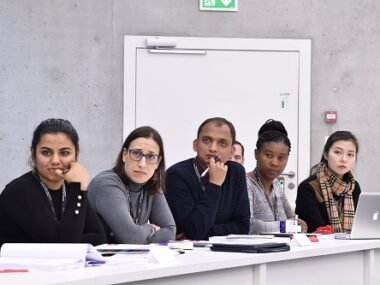The Fulbright Program is a prestigious international scholarship funded by the U.S. government. It was established in 1946 to promote educational exchange between the United States and over 160 countries. Each year, it offers around 8,000 grants to students, scholars, teachers, professionals, and artists to study, teach, or conduct research abroad.
For many, it’s a fully funded opportunity to gain global exposure and make an impact in their field of study or professional work.
On June 11, 2025, nearly all members of the Fulbright Foreign Scholarship Board resigned in protest. The reason? They accused the Trump administration of political interference in the selection process.
Reports revealed that over 200 approved awards were withdrawn, and 1,200 international recipients faced added scrutiny. The board stated that this undermined academic freedom and violated the legal framework that protects the program’s integrity.
Who Can Apply
The Fulbright Scholarship is open to a wide range of candidates. This includes:
- U.S. citizens wishing to study or conduct research abroad
- International students and scholars who want to study or teach in the United States
- Early to mid-career professionals and artists looking to expand their global impact
The program supports nearly all fields of study, from science and technology to humanities, education, and the arts.
How to Apply
Applying for the Fulbright Scholarship involves several steps, and they vary slightly depending on your nationality.
- Choose the right program: U.S. applicants apply through the Fulbright U.S. Student Program. International applicants should apply via the U.S. embassy or Fulbright Commission in their home country.
- Prepare your application: You’ll typically need academic transcripts, language proficiency scores (such as TOEFL or IELTS), letters of recommendation, a detailed study or research proposal, and a personal statement.
- Submit online: Applications must be submitted via the official Fulbright application portal.
- Interview: If shortlisted, you’ll be invited for an interview to discuss your project and qualifications.
Requirements at a Glance
- A strong academic record or professional background
- Proof of English proficiency (TOEFL, IELTS, or equivalent)
- A clear and impactful study or research proposal
- Letters of recommendation from academic or professional referees
- Commitment to cultural exchange and leadership potential
Each country may have specific requirements, so always check your local Fulbright Commission or U.S. embassy for details.
Important Deadlines
Deadlines vary by country and program type. However, here’s a general guide:
- For international students: Applications usually open around August and close by October
- For U.S. students going abroad: Deadlines typically fall in October or early November
Visit the official Fulbright website or your country’s Fulbright Commission for exact timelines.
Tips to Boost Your Selection Odds
- Start early: Give yourself at least 3 to 6 months to prepare a compelling proposal.
- Focus your application: Make sure your project has clear goals and aligns with Fulbright’s mission of mutual understanding.
- Be authentic: Your personal statement should reflect your story, your goals, and your desire to contribute globally.
- Choose the right referees: Ask people who know you well and can speak specifically about your abilities.
- Practice for the interview: Be ready to discuss your goals, research plan, and how you’ll adapt to a different culture.
Frequently Asked Questions (FAQs)
Q1: Who oversees the Fulbright Scholarship program?
The Fulbright Program is managed by the U.S. Department of State and, in each participating country, by either a U.S. embassy or a binational Fulbright Commission.
Q2: Why did the board resign?
The board resigned in protest against political interference that they believe violated the program’s core values of fairness, transparency, and academic freedom.
Q3: Is the Fulbright Scholarship still active despite the resignations?
Yes. The program continues to operate, though the board’s departure has raised questions about future governance and potential changes to selection criteria.
Q4: How many awards are given each year?
Approximately 8,000 awards are granted annually across all participating countries and disciplines.
Q5: Can Nigerian students still apply?
Yes. Nigerian students should apply through the U.S. embassy in Nigeria or visit the Fulbright Commission’s local site for specific application details and deadlines.
The Fulbright Program remains one of the most respected and fully funded scholarships in the world. While recent board resignations highlight growing concerns over political influence, the core mission of the program remains unchanged—for now.
If you’re passionate about making a global impact through education, this is an opportunity worth pursuing. Begin early, stay informed, and apply confidently.






